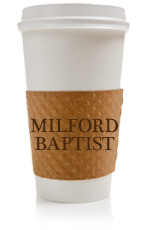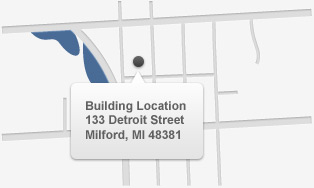-
- “On the Same Page” Weekly Newsletter
- Anger (Ephesians 4:26)
- Renewing the Mind
- Sermons
- Truth-Telling (Ephesians 5:25)
- Book of the Month
God has Called us to:
Forever-Fellowship
All-Week-Long Worship
Day-by-Day Discipleship
Moment-by-Moment Mission

Located across the
street from Starbucks
in Downtown Milford, MI. -
Blog
What is this confidence that you have? (Is 36:4)
March 15, 2025
What is this confidence that you have? (Is 36:4)
One of the great stories late in Judah’s history is that of Hezekiah and God’s deliverance from the Assyrian invasion. Sennacherib is their king, and Rabshakeh is their spokesman. Those are big and hairy names. People might take you more seriously if you had a name like Rabshakeh. I would like to analyze his speech with you which is intended to frighten Jerusalem into submission.
The first thing that Rabshakeh points to is an inconsistency in the faith of Judah (Is 36:5-6). They say that they believe in God, and yet they have made an alliance for protection with Egypt. God has repeatedly instructed them to “trust in the Lord,” and yet they feel that they must shore up their defense by depending on ungodly nations. The Church does this when we rely on the world to accomplish our ends. Inconsistencies between what we say that we believe, and what we actually do, weaken us.
The second thing which is obvious about Rabshakeh is that he largely misunderstands Judah’s God and religion (Is 36:7). He points to Hezekiah as already undermining faith in God by removing the “high places,” which are sites of worship around Judah. But he does not know that those “high places” are actually places where false gods have been worshipped, and Hezekiah removed them in order to restore a focused reliance on the one, true God. The real tragedy is that the high places were even there in the first place. The Church is terribly weakened when we tolerate a worship of multiple gods.
The next tactic that Rabshakeh uses is to point to their military weakness (36:8-9). He brazenly offers to give to Jerusalem two thousand horses, but claims (correctly, I think) that Jerusalem could not find riders for those horses with the ability to confront the abilities of the Assyrians. The Church is not preserved through the world’s skills, as in money or marketing. Our strength is in God, in obedience to His Word, and in God’s provision. It seems that if the Church is regarded as strong according to worldly metrics, then the Church has wandered off her path.
Then Rabshakeh clearly states that he himself speaks for God (36:10). This is audacious, but it is also common. The Bible calls them false prophets, and false prophets can inhabit the halls of education, finance, government, and corporations. Some of the most effective false prophets are religious leaders. It is easy to claim to speak for God. But there is an easy test. The Church must continually study to compare such statements with God’s Word. God does not contradict Himself, and if someone contradicts God’s Word, they are indeed a false prophet.
Rabshakeh then paints a stark picture of impending doom if the city does not comply (36:11-12). They face suffering, humiliation and defeat. But once again, the Church should know that we have been given the end of God’s story, and that there are two ultimate outcomes, Heaven and Hell. Whatever may happen before that time, whether it be thriving or even martyrdom, is small in relation to the eternal outcome. The Church knows that to stand faithfully with our faithful Savior is the only proper path.
- “Prayer is a sincere, sensible, affectionate pouring out of the heart and soul to God, through Christ, with the strength and assistance of the Holy Spirit, for such things as God has promised, or according to the Word, for the good of the church, with submission, in faith, to the will of God.” - John Bunyan


